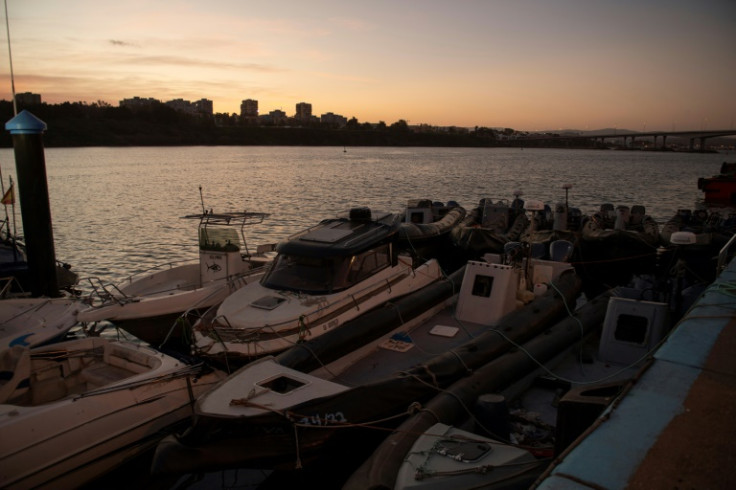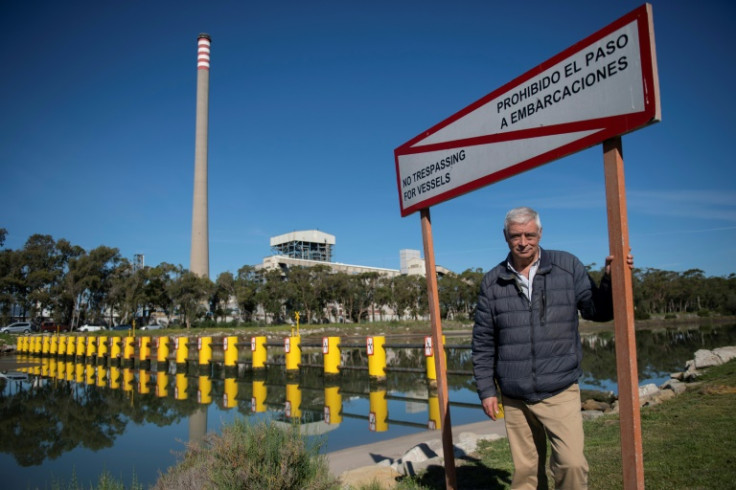Spain Struggles To Stamp Out Drug Trade In Poor South

The killing of two police by drug traffickers has focused attention on smuggling networks in southern Spain, where poverty makes it easy for gangs to recruit youngsters.
Footage shared online shows a traffickers' speedboat deliberately ramming a police boat on February 9 in Barbate harbour near the southern port of Cadiz.
The deaths of the two Guardia Civil police shocked the southern region even though it is used to stories of customs agents and police hurt in chases, traffickers arrested and large quantities of hashish seized.
The speedboats used by traffickers to bring hashish from Morocco are 12 to 14 metres (40-46 feet) long, have three or four powerful engines, radars and night-vision equipment and can carry up to 3,000 kilos (6,600 pounds) of product.
Capable of reaching up to 100 kilometres (60 miles) per hour the boats "are transformed into a sort of missile" that "destroys" everything in their path, said Lisardo Capote, head of customs enforcement in the Campo de Gibraltar, an area at the epicentre of the drug trafficking.
Drug smuggling has a long history in the region, Capote told AFP in Algeciras, where customs boats set out to patrol the Strait of Gibraltar that separates Spain from Morocco by just 14 kilometres (8.5 miles) at its narrowest point.
For some locals, smuggling is the "easiest" way to make a good living, he said, standing near dozens of boats confiscated from smugglers.
Young people, usually from poor areas with massive unemployment and a "tradition" of smuggling, are most likely to take part, said Francisco Mena, head of the anti-drug trafficking group Coordinadora Alternativas.
"Drug trafficking feeds on unemployment, poverty, social exclusion," he said.
The Cadiz region has districts with the highest jobless rates in Spain, such as La Linea de la Concepcion, which has 33 percent unemployment compared to the national average of 12.3 percent.
Gangs easily recruit teenagers who make hundreds of euros acting as a lookout and tipping them off when the authorities are moving in. Helping to unload boats can earn them thousands of euros, driving a speedboat tens of thousands.
It is hard a youth to resist joining a gang when they see a childhood friend "with a standard of living they can't afford, with the latest mobile phone or PlayStation, the best motorcycle," said Mena.
It is in quiet places like the coastal village of Palmones near Algeciras that drug shipments usually land at night.
When it reaches the shore, a swarm of people rush to unload the cargo. It is then hidden in nearby houses or warehouses before being transported to the rest of Europe.
Security has improved over the past decade. At one time, gangs landed drugs in daylight, openly confronted police and even raided a hospital in La Linea in 2018 to release a suspected trafficker injured in a car chase.
That year, the interior ministry sent a special police unit to the area, which broke up drug clans, arresting thousands of people and seizing hundreds of tonnes of drugs.
But this success had an unwanted effect.
Today, gangs are led by "younger people" who "have different rules or no rules", which can lead to incidents like the one in Barbate, said Manuel Morenete, a lawyer in Algeciras who has represented suspected traffickers.
Psychologist Daniel Grande Jimenez tries to keep youths away from trafficking by organising activities such as hikes and football matches.
"Keeping busy in these neighbourhoods is very important," he said.
Many residents said they felt stereotyped.
"We are tired of the bad reputation," said Miguel Montes, a businessman in La Linea which is near the British territory of Gibraltar.
The vast majority of residents "are hard-working" and only 0.1 percent are smugglers, he insisted.


© Copyright AFP {{Year}}. All rights reserved.





















